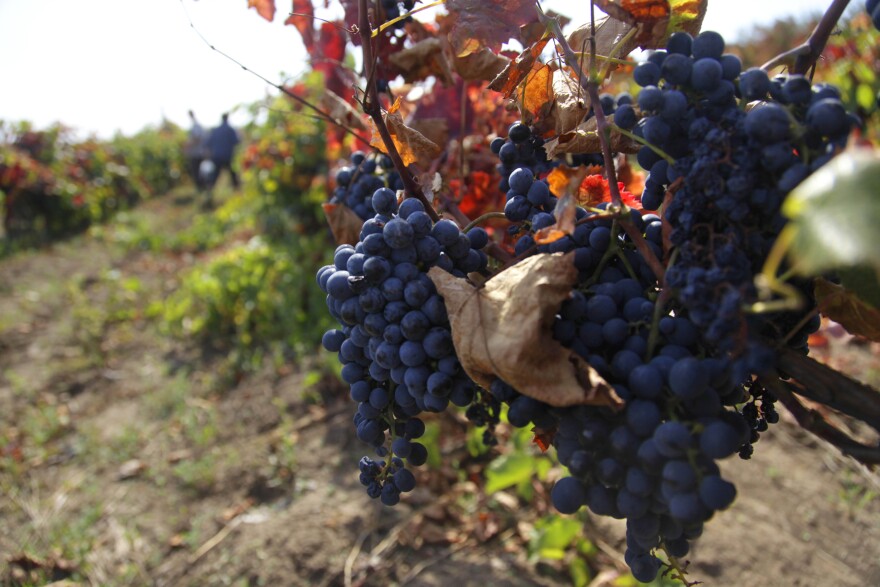Consider, for a moment, the misfortunes of winemakers in Moldova, a former Soviet republic in southeastern Europe, tucked in between Ukraine and Romania.
Their country is the poorest in Europe, with a per capita GDP about the same as Honduras. They'd love to sell their product — which has gotten approving nods from foreign critics -- in wealthier countries. But most of those customers don't even know that Moldova exists, let alone that its winemaking tradition goes back thousands of years.
"It's a very popular question: Where's Moldova?" says Veaceslav Nivnea, marketing director for Albastrele Wines, a company based in Chisinau, the country's capital.
Now throw in a dose of political upheaval. And we're not just talking wars and revolutions, Soviet rule or destruction of vineyards during Mikhail Gorbachev's anti-alcohol campaign in the 1980s.
There's more. Late last year, Russia, traditionally their biggest market, banned imports of Moldovan wine, ostensibly for reasons of food safety.
But the timing — right before Moldova was set to sign an agreement to pursue closer ties to the European Union — suggested that the move could have been political retaliation. (The EU's food safety authorities saw no problem with the same wines.) Meanwhile, right next door in Ukraine, there's a political crisis and escalating violence.
So are Moldovan winemakers feeling beaten down? Not at all. "It helps us," says Andrian Davidescu, commercial director of Vinaria din Vale, another wine producer. "Before, nobody knows there is a country Moldova. Now, they know where it is. Next to Ukraine!"
In fact, 13 of Moldova's top wine producers chose just this moment to promote their wines — which observers say have improved vastly in recent years — to wine reviewers and importers in the U.S. Earlier this week, they held a tasting event in Washington, D.C. At each table there was a sign: "Looking for importer." On Thursday, they'll be doing the same at the Astor Center in New York.

According to Christy Canterbury, a New York-based wine expert, wines from Moldova certainly could claim a place on the wine list, if given a fair chance. "Prospects for the dry aromatic whites are fantastic," she says. Their biggest obstacle? A lingering perception among many importers that former Soviet republics "must be rustic countries that don't know what they're doing."
Moldova has outgrown that reputation, she says. Winemakers are using the latest technology, and "the terroir is excellent." She's tasted 13 wines from producers on the current tour. Eleven of the 13, she says, "were very good." (The other two were "fine, but nothing to write home about.")
The other big obstacle for Moldovan producers, she says, is the crowded wine marketplace, and the tendency of shops to put wines from Moldova in the section marked "Other Regions," at the back of the store or the bottom of the rack. Canterbury advises Moldovan producers to focus on promoting their local wine varieties, such as Feteasca Alba and Feteasca Neagra, because few others grow them.
But the essential problem of Moldova's obscurity remains. The country's winemakers need something to grab a buyer's attention; something that gives Moldovan wines an identity, and makes them memorable.
Canterbury has one idea. There may not be another country in the world that relies so heavily for its economic survival on this ancient drink.
Only 3.6 million people live in Moldova, but somehow it's the 14th biggest wine producer in the world, just ahead of Brazil. According to Canterbury, roughly a quarter of the country's population works, directly or indirectly, in the wine business. Astonishingly, it even boasts the world's biggest wine cellar, a vast cave with 120 miles of passageways, of which 34 miles are used. Moldovans even claim that the shape of their country resembles a bunch of grapes.
So who's got a catchy marketing slogan for a small, embattled country that's kind of like a big, big vineyard?
Copyright 2021 NPR. To see more, visit https://www.npr.org.




